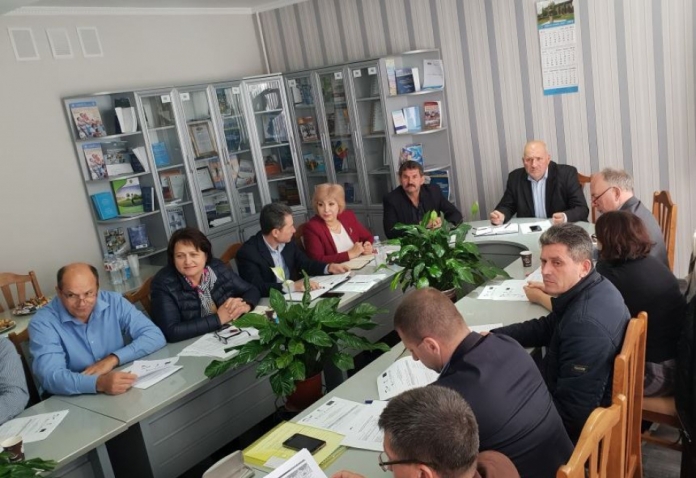Members of Local Steering Committee of ‘Modernization of water supply and sanitation public services in Leova rayon’ project gathered on Wednesday, 26 September in the third meeting, organised at Leova Rayon Council. At the meeting the progress report for Quarters II and III of 2018 was presented and the project implementation plan for Quarter IV was examined.
The meeting was chaired by Ion Gudumac, chairmen of project LSC and president of Leova rayon. In his greeting, the chairman of LSC urged all the stakeholders to get actively involved in the successful implementation of the water supply and sanitation (WSS) project.
Valentina Plesca, GIZ/MLPS National Senior Advisor on Local Public Services made a presentation on the importance of local contributions for individual connections of citizens from localities benefitting from projects financed with EU sources and namely: ‘Improvement of water supply services for Iargara, Filipeni, Romanovca and Cupcui localities from Leova rayon’ and ‘Extension of sewage system in Leova town; Construction of waste water pumping station in Leova town’.
During the same meeting, the financial situation was tackled with regard to the implementation of the ‘Construction of Leova-Iargara main water pipeline’ project and the current situation of the Diagnostic Analysis development for SA ‘Apa Canal Leova was presented as well the operator’s development objectives.
The goal of LSC is to provide solutions for issues that might appear during project implementation, as well as give more responsibility to involved parties at local level.
It is worth recalling, that over 20 thousand inhabitants in the south of the Republic will have access to water supply and sanitation services as a result of the Leova-Iargara main water pipeline construction. It will be 22,9 km long, will have two pumping stations and a re-pumping station and will provide drinking water for 28 localities in Leova rayon.
************
The project ‘Modernization of Local Public Services in the Republic of Moldova’ (MLPS) is implemented by the German Development Cooperation through GIZ in partnership with the Ministry of Agriculture, Regional Development and Environment and is financially supported by the German Ministry of Economic Cooperation and Development (BMZ), the European Union, the Romanian Government, the Swedish Government and the Swiss Agency for Development and Cooperation (SDC).






